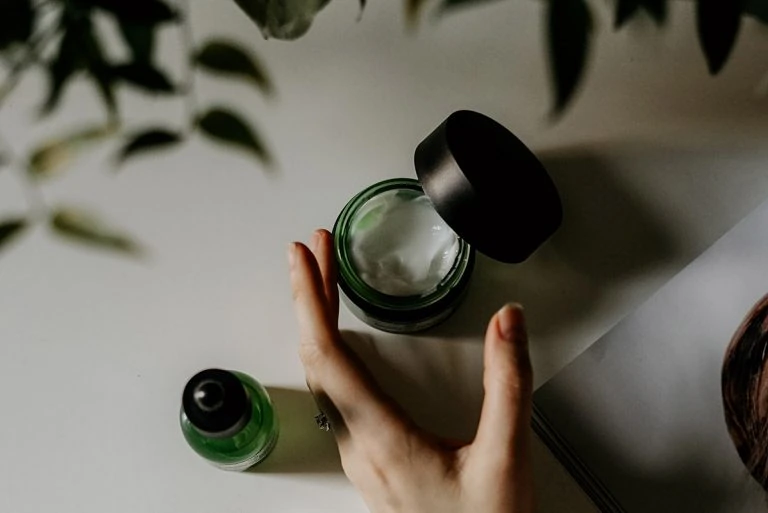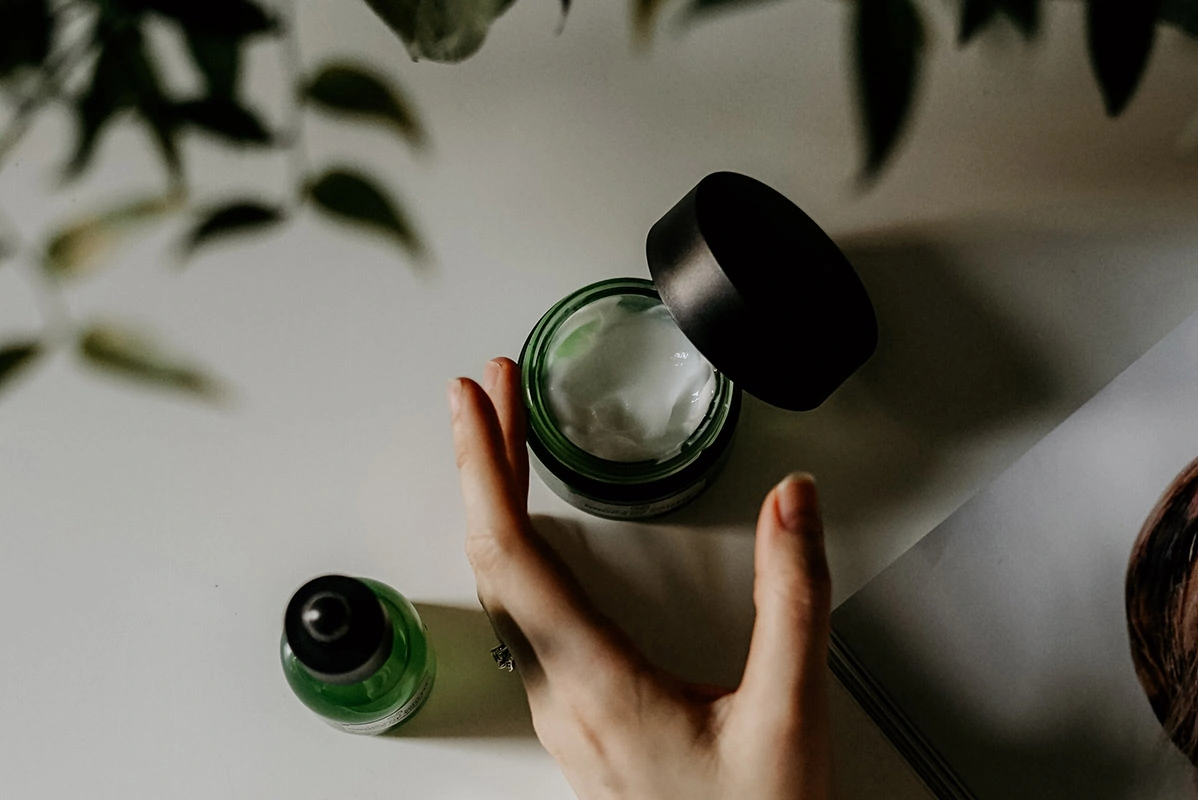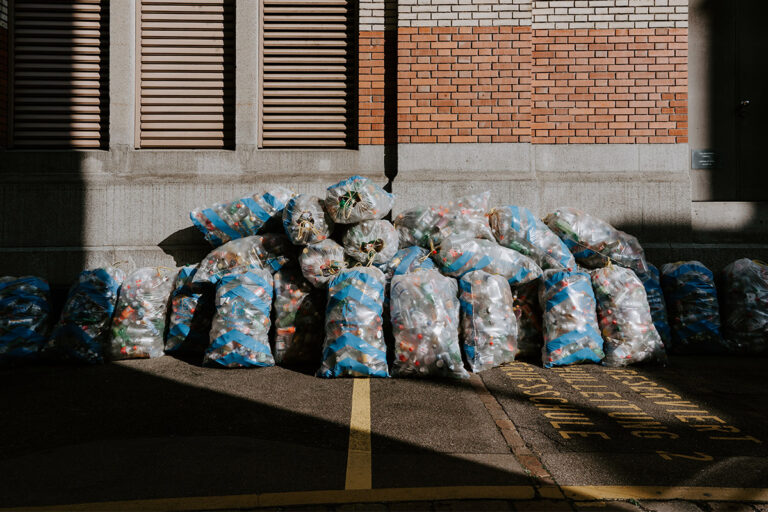You wouldn’t believe the ingredients found in regular skincare products, from harsh chemicals to carcinogenic parabens. Do you really want to put these on your face, let alone have them soak in through a mask?
The best organic face masks are not only kinder to your skin but are also kinder to the environment, minimizing their impact on the planet and animals through eco-conscious agricultural and manufacturing processes.
Best organic face masks to try
These organic face masks are made with natural ingredients and free from harmful chemicals and other compounds that can irritate the skin or cause allergic reactions. Most only contain components produced without environmentally damaging chemical pesticides, fertilizers, minimal water, and are cruelty free.
1. New York Biology Dead Sea Mud Mask
Dead Sea mud is known for its healing and rejuvenating properties, and this mask will let you harness these powers for your skin! The mud is infused with natural minerals to purify your skin, absorb excess oil, and unclog your pores.
This gentle exfoliation effect removes oil, dead skin cells, and toxins, leaving your skin soft and fresh. It contains other natural ingredients to nourish your skin, including aloe vera, calendula oil, vitamin E, jojoba oil, and sunflower seed.
Suitable for all skin types, this is a daily acne treatment that is gentle yet strong. This makes it the best organic face mask on our list for anyone who needs a treatment that is gentle but strong enough to be highly effective against even stubborn acne.
2. Lily Farm Fresh Rejuvenating Enzyme Mask
Made from organic ingredients formulated to remove dead skin cells, this mask can stimulate new cell growth and regenerate damaged skin. It’s the best organic face mask option for anyone looking for an all-around treatment suitable for al skin types.
It contains organic honey to draw in moisture while also being naturally antibacterial. The mask also has papaya and pineapple with digestive protein enzymes to clear dead skin cells.
We also love that it’s eco-friendly in other ways: the product is made in the USA, is fully biodegradable, and comes in recyclable packaging.
3. Fat and the Moon Pimple Mud Bentonite Face Mask
This Fat and the Moon mask is designed specifically to eliminate pimples with deep pore cleansing. It’s made from bentonite clay to stimulate facial circulation and other organic ingredients like witch hazel and tea tree for a deep clean.
You can use this mask as a full face treatment or just apply to spots and problem areas. The concentrate mask is free from harsh chemicals so it will give your face a deep clean without drying it out, unlike many anti-acne products.
4. Paavani Ayurveda Ayurvedic Organic Face Mask
Paavani is an organic beauty brand that follows the principles of Ayurveda yoga, which is centered around the concept of purity. Their products use only the purest ingredients designed to work with your skin’s own needs.
This mask contains rhassoul clay, oat milk, dry milk, and other organic ingredients to clean your skin and keep it healthy. Handmade in small batches in California, this mask comes with a complimentary face wash.
5. Honeyskin Turmeric Face Mask
Designed for sensitive skin, this mask will give dull skin a smooth and radiant shine. It is made from organic ingredients, including Manuka honey, kaolin, and bentonite clay, to gently exfoliate your skin.
The mask also contains ginger root oil to help fade the appearance of scars, thanks to its enzymes and antioxidant properties. There’s also aloe vera to nourish and moisturize your skin to avoid drying out from the exfoliation.
6. Rael Bamboo Facial Sheet Masks
The best organic face mask in ‘sheet’ form, this set contains a hydrating collagen, tea tree, and vitamin C masks. Use the masks for different effects, or try them out to see which you like the best!
All of the masks are vegan and cruelty-free and do not contain harsh chemicals such as synthetic fragrances, artificial dyes, parabens, sulfates, or phthalates. Instead, they are concentrated serums of natural ingredients that are suitable for skin types.
7. Era Organics Microdermabrasion Facial Scrub
This one is a scrub rather than a mask, but it will give your skin a deep clean and leave it rejuvenated!
This microdermabrasion scrub will gently but effectively exfoliate dead skin cells, remove stubborn blackheads, and minimize your pores. Rather than tearing and damaging your skin, this gentle exfoliator will cleanse your skin for a healthy, glowing result.
The scrub contains no parabens or alcohol, but instead features organic ingredients such as Manuka honey, aloe vera, walnut, and vitamin C.
8. Earth Harbor Nymph Nectar Superfruit Radiance Balm
Made in Utah at a solar-powered facility, this organic face mask is a truly eco-friendly choice! Its organic ingredients include olive, sea fruits, and tropical berries to rejuvenate dry, damaged, and dull skin.
A deeply hydrating gel, that can be used as a rescue mask or as an overnight treatment.
9. Aztec Secret Indian Healing Clay
This deep-cleansing mask can not only be used on your face, but also as a mask for your hair or body. The natural calcium bentonite clay is designed to clean deep into your pores while being a natural ingredient that will rejuvenate rather than irritate your skin.
Let it soak into your skin or use it to make a foot soak or clay bath. This healing clay also works well as a chilled clay knee pack for sore or inflamed joints, or even to soothe insect bites.
10. Bell Mountain Naturals Pink Theory Clay Face Mask
This face mask uses only organic materials and ingredients, grown without the use of chemical pesticides or fertilizers, limiting agricultural runoff that can be devastating to the environment. It contains organic chamomile to calm redness and organic coconut milk to soothe and hydrate your skin.
Specifically designed to help dry and irritated skin, this mask also contains organic rosehip, which is high in Vitamin C and will leave your skin glowing.
Additionally, as it’s made in the USA, this makes it a doubly eco-friendly choice. Locally-made products are much better for the environment as they don’t have to travel so far from the production site to your door, generating less emissions that contribute to climate change.
Organic face masks: everything you need to know
Organic skincare has boomed in recent years, and just about every brand seems to be promoting “organic” or “natural” face masks. However, some of this marketing can be misleading, so it’s important to keep a few things in mind.
How do you know if your skincare products are really organic?
Organic is a big buzzword at the moment, and many brands are taking advantage of this to promote their products as organic, particularly in the skincare industry. In general terms, organic means that the product has been sourced from ingredients produced without pesticides, fertilizers, or other chemicals.
When it comes to food, the U.S. Department of Agriculture (USDA) certifies foods as organic only if at least 95% of their agricultural ingredients meet their requirements for being naturally grown. This means that if you buy food showing the USDA logo, you can be assured that it meets these guidelines.
Unfortunately, there is no clear definition of organic for skincare products in the US. Cosmetics are regulated under the Federal Food, Drug and Cosmetic Act and the Fair Packaging and Labelling Act, but neither of these laws defines the word “organic”.
Therefore, face masks and other skincare products can be labeled as organic but do not need to comply with any set rules or definitions. Furthermore, a range of associated terms are frequently used but also have no agreed definition in the beauty industry, including botanical, green, natural, hypoallergenic, and non-toxic.
It is important to be vigilant when buying an organic face mask or any other natural beauty product. Do some research – check how the brand sources its ingredients and how the product is made.
Also, be sure to check the ingredients list. Some face masks may be labeled as organic because they have some natural components, while also containing synthetic ingredients.
If you want to buy an organic product, whether it’s skincare or makeup, you should aim for one where the vast majority, if not all of the components are certified as organic.
What to look for in an organic face mask
Although there is no official US government certification for organic skincare, there are various organizations which have developed their own standards to certify products.
If a product has one or more of these labels, you can be confident that it complies with certain requirements:
- PETA Cruelty-Free Certified – for brands that do not “commission any animal tests on ingredients, formulations, or finished products”.
- Leaping Bunny Certification – indicates that the product is cruelty-free and has not been tested on animals.
- USDA Organic – guarantees that ingredients meet official government organic standards. Although this only refers to food ingredients, this may be present on face masks made with 95% or more organic food ingredients.
- Environmental Working Group Verified – means that the brand has gone through a stringent verification process to show their products are free of contaminants.
- Ecocert – this French certification means that the product has at least 95% natural ingredients, and is free from GMOs, parabens, phenoxyethanol, other petrochemicals, or other synthetic chemicals.
- Non-GMO Project Verified – shows that the product is made to the highest standards of best practices for GMO avoidance.
Are organic masks good for skin?
More and more people are opting for organic face masks for environmental reasons, and because they want to avoid many of the ingredients found in traditional skincare. The beauty industry is packed with harmful chemicals that can irritate the skin and cause allergic reactions.
Many traditional skincare products contain harsh chemicals and toxic artificial fragrances. Ingredients commonly found in regular face masks may also have other health implications, such as parabens that mimic estrogen and increase the risk of breast and skin cancer.
However, just because something is organic doesn’t mean it’s good for you. It’s important to check the ingredients list to make sure that it doesn’t contain anything that could be harmful or irritating to your skin.
Some natural plant extracts can be irritating to the skin, even if they are organic. For example, lavender oil is commonly used in organic skincare products for its wonderful aroma. However, lavender oil can cause allergic reactions and skin irritation, whether it is organic or not.
Another ingredient to avoid is Sodium Lauryl Sulfate (SLS), a common ingredient in both traditional and natural beauty products. SLS can irritate the skin, cause canker sores and breakouts, and damage the eyes.
What’s the difference between a natural face mask and an organic face mask?
Another result of the popularity of organic products is that you’ll see a lot of products marketed as not only organic, but also “natural” and “green”.
Many people use these words interchangeably and assume that they are basically the same thing.
Although there is no legal definition of either in the U.S, the terms are generally considered to mean:
- Organic – ingredients are grown without chemical pesticides, fertilizers, or GMOs
- Natural – the product contains ingredients from plants, minerals, or animal by-products
So, essentially, organic refers to how the ingredients are farmed, and natural refers to the type of ingredients used in a very general sense.
However, brands can throw these terms around for marketing purposes. In particular, anything could be promoted as being made from natural ingredients, while still containing harmful ingredients to both human health and the environment.
No organizations or certification of “natural” so you need to be doubly vigilant and check the product’s ingredients and how it is made.
Best organic face mask: final thoughts
Before you apply a face mask for a relaxing home spa treatment, make sure that it will rejuvenate your skin rather than irritate it. The best organic face masks have only ingredients that will nurture your skin, and are produced without pesticides or fertilizers that can harm the environment.
Just remember that the terms can be misleading, so be sure to check the ingredients and look for labels that show the product has been independently certified as organic, cruelty-free, and eco-friendly.
If you’re interested in adopting a more eco-friendly lifestyle, take a look at our posts on the best zero-waste deodorants, the best zero-waste toothpaste and eco-friendly bubble bath. And don’t forget to share this article with your friends and family!























